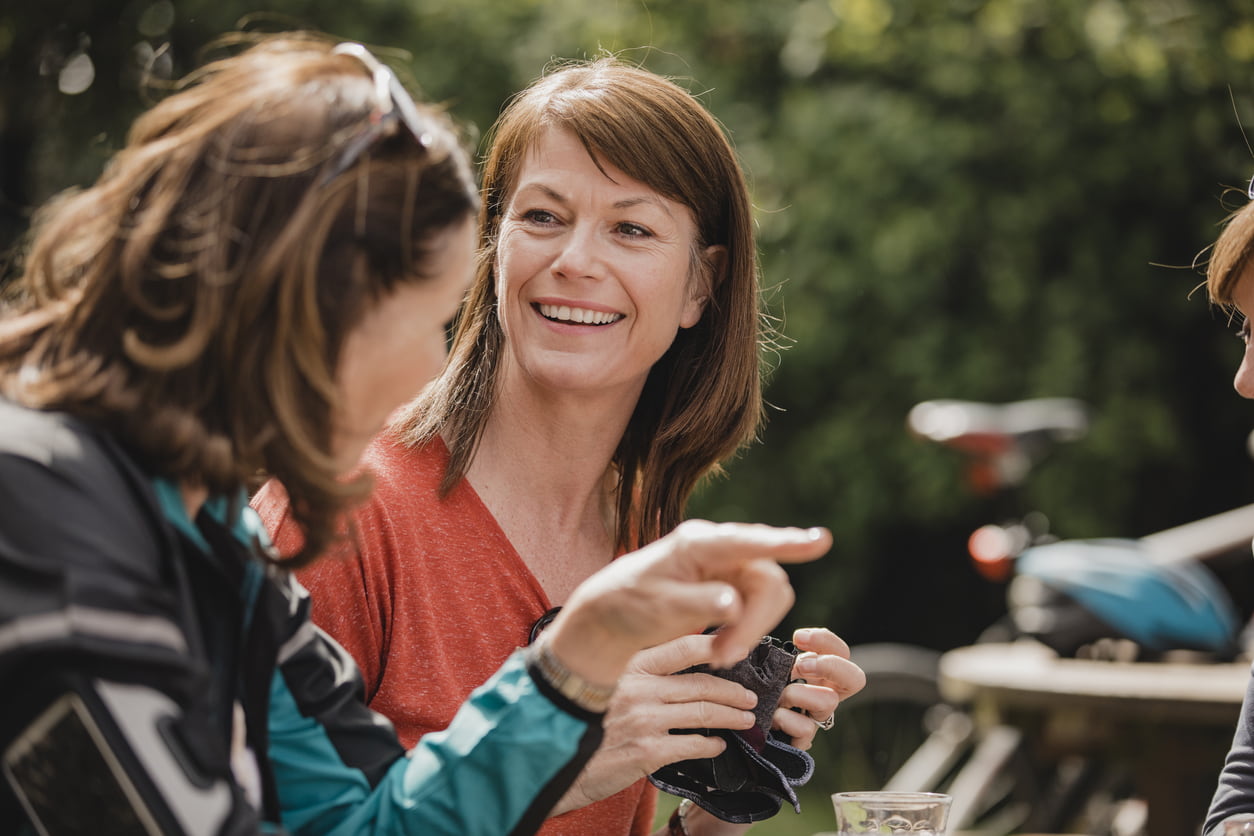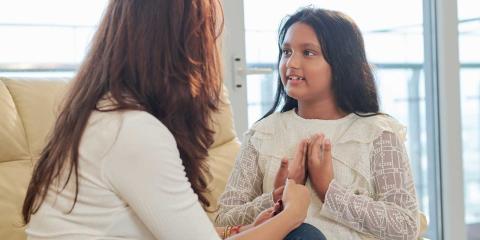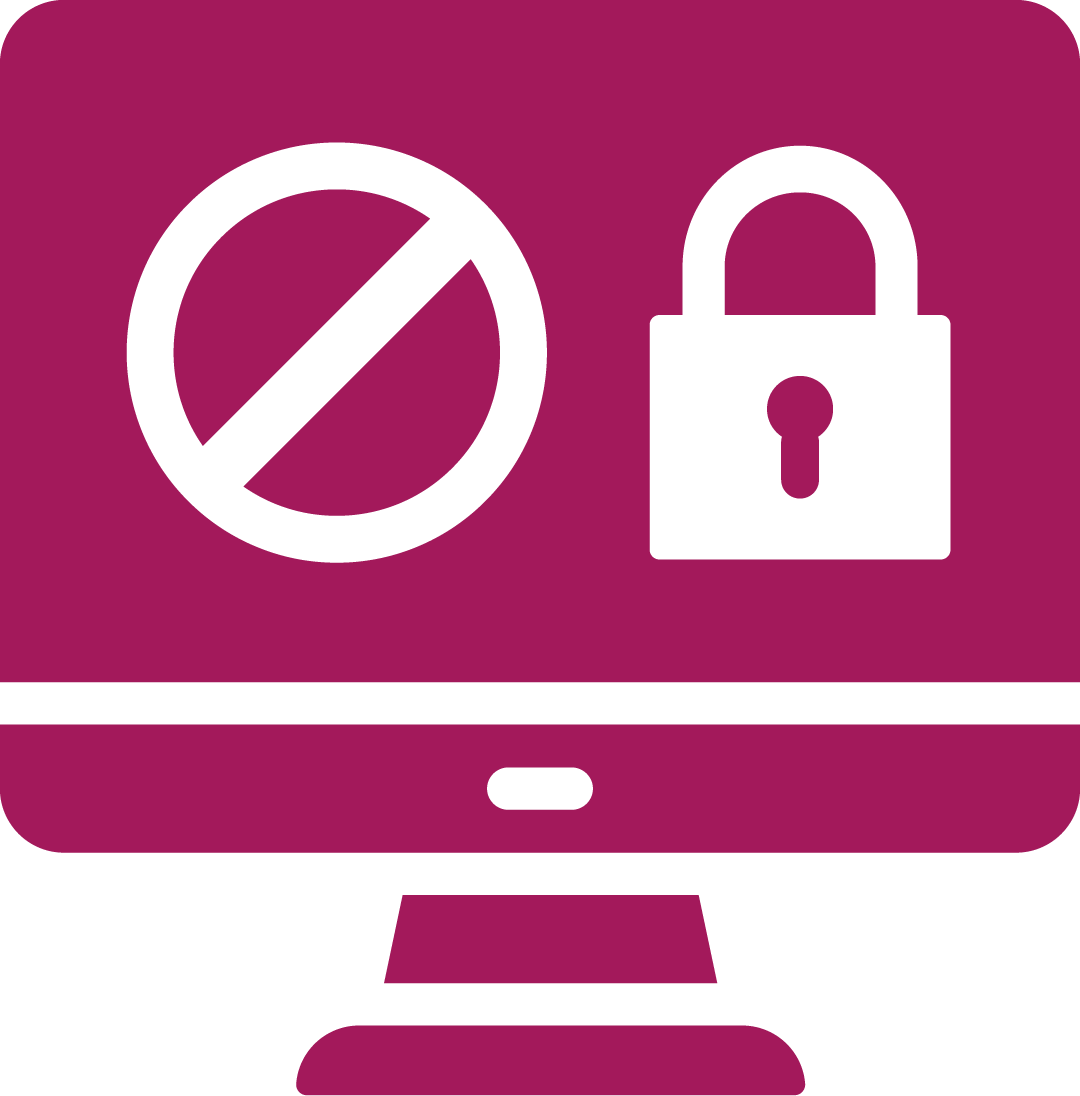Time of the month. Having the painters in. Getting a visit from Aunt Flo. These are all phrases we use to avoid talking about periods. But there’s nothing embarrassing about menstruation – it’s a perfectly natural thing that happens to over 50% of the population! Many women try to hide or ignore issues with their period, either because they’re embarrassed or because they don’t think anything can be done to help. But there’s lots of help out there – so don’t worry about asking for support.
If you have any concerns, pain or discomfort during your period, you don't have to suffer. If you have any queries or concerns about your period, don’t be embarrassed to ask your pharmacist or local GP practice for help.
What are periods?
A period is the part of the menstrual cycle when women, girls and people who menstruate bleed from their vagina.
Of course, everyone is different, but for most people this happens every 28 days or so and lasts from around 4 to 8 days.
Periods start when we’re around aged 12 (although again, this varies). If it hasn’t started by around the age of 16, it’s a good idea to see your doctor to find out why it hasn’t happened yet. However, a delay in starting periods isn't usually anything to worry about. You can find out more about delayed periods on the NHS Inform website. There’s also loads of great information for young people on the Young Scot website.
Most people stop having periods when they’re around 45-55 – this is known as menopause.
Can I get free period products?
You can get period products for free in Scotland in a range of places. You can find out more about this on the MyGov.scot website.
What can I do about period pain?
A lot of people experience pain with their periods – known (not surprisingly!) as period pain. This can be anything from a dull ache to an intense pain.
There are lots of ways to treat milder period pain, for example:
- holding a hot water bottle against your tummy
- gentle exercise
- pain relief, such as paracetamol or ibuprofen.
Talk to your pharmacist if you’re not sure what pain relief to take, and they can give you advice.
If your pain is more severe, talk to your doctor – you might think there’s nothing they can do to help but this isn’t true. There are various types of medication available which they can prescribe. You can find out more about period pain on the NHS Inform website.
What about PMS?
PMS (or premenstrual syndrome) is caused by hormone changes in the body before your period starts. It can cause physical changes (like tiredness) and emotional changes (like irritability or feeling low) and for some people can affect their lives significantly.
You might think this is something you just have to put up with but it’s not at all. If PMS is affecting your day to day life or relationships, talk to your local GP practice as soon as you can.
In this video from the NHS, Consultant Dr Ellie Golightly talks about managing PMS symptoms.
You can also find out more about PMS on the NHS Inform website.
What's normal and what's not?
Everyone’s period is different. Some people have regular cycles, some people have more irregular cycles and are never quite sure when their period going to come. Some people bleed a lot while others have much lighter periods. Sometimes periods can last for a long time, sometimes they’ll be over quickly. All this means we don’t always realise when something is wrong. A good way of thinking about this is that your period shouldn't stop you doing the day to day things you would normally, like going to school or work, or taking part in sports or other activities.
In this video from the NHS, Dr Jacqueline Maybin, Senior Research Fellow and Consultant Gynaecologist, explains more about what's normal and what's not.
When should I talk to my doctor?
You should talk to your doctor if:
- your periods are affecting your day to day life (for example, because they’re too heavy to manage or are causing you pain)
- you’ve started your period but haven’t had one for a while (3 to 6 months) but aren’t pregnant
- you bleed between your periods, after sex or after the menopause
- you experience other irregularities with your periods, for example the number of days in between your period keeps changing or your periods are coming closer together or further apart than usual
- you're worried about your periods for any reason.
If you can, keep a note of your period dates and any symptoms using a calendar, diary or app. You can then discuss this with your doctor, as these might be symptoms of conditions such as endometriosis or PCOS.
In this video from the NHS, Dr Louise Kellison, Consultant, Obs and Gyn, explains more about what to do if your periods are irregular.
Take a look at the NHS Inform website for lots more information about periods and menstrual health.
Menstrual health conditions
There are a number of different menstrual health conditions that can affect women and people who menstruate. It’s good to know a bit about them so that if you experience any symptoms, you can talk to your doctor straightaway. You can find more information below, and there’s even more detail on NHS Inform.
Endometriosis
Endometriosis is a long-term (chronic) condition where tissue similar to the lining of the womb is found elsewhere in the body. It's very common, affecting around 1 in 10 of those who menstruate. For some people, it can have a significant impact on their physical health, emotional wellbeing, and daily routine. But although it can’t be cured, it can be treated. So it’s important to speak to your doctor if you have any of the following symptoms:
- painful, heavy or irregular periods
- pain when going to the toilet
- tiredness all the time
- severe pelvic pain between periods.
You can find out more about endometriosis by watching this video, and visiting NHS Inform.
As endometriosis is a long term condition it may also affect your mental health, but there is support available. If you need support or any additional information please go to:
PCOS
Polycystic ovary syndrome (PCOS) is a condition that affects how your ovaries work. Despite the name, there are no cysts on the ovaries. During ovulation, an egg is released once a month. PCOS can have an impact on this and cause irregular ovulation, or no ovulation at all. If you want to have a family, PCOS can make it difficult to get pregnant.
PCOS can also affect your metabolism (the chemical reactions in the body's cells that change food into energy) making it easier to gain weight and more difficult to lose weight.
However, there is treatment available, so speak to your doctor if you’re experiencing the following symptoms:
- irregular periods – you should have at least 3 or 4 periods a year to keep the womb healthy if you're not using hormonal contraception
- excess facial or body hair which is caused by slightly higher levels of 'male' hormones (androgen) in your body
- weight gain
- hair loss or hair thinning
- oily skin or acne
- difficulty or delays getting pregnant.
You can find out more about PCOS on NHS Inform. For additional information and support, Verity is a self-help group for people with PCOS.
Adenomyosis
Adenomyosis is a condition that causes the lining of the womb (the endometrium) to bury into the muscular wall of the womb. It’s not a life-threatening condition, but the symptoms can have a big impact on your day-to-day life so it's important to get the support you need.
Speak to your doctor if you have the following symptoms:
- heavy periods that last for a long time
- severe period pain
- a feeling of pressure in your tummy
- bloating (your tummy sticks out more than normal).
You can find out more about adenomyosis on the NHS Inform website.
Fibroids
Fibroids are non-cancerous growths that develop in the muscular wall of the womb (uterus). They’re pretty common – around 1 in 3 people who menstruate develop them at some point in their life, and they’re more common as you get older.
Many people don't even know that they have fibroids because they don't have any symptoms. This is nothing to worry about.
However, you should talk to your doctor if you have:
- heavy periods
- painful periods
- tummy (abdominal) pain
- lower back pain
- a frequent need to urinate
- constipation
- pain or discomfort during sex
- symptoms which are affecting your day to day life.
You can find out more about fibroids on the NHS Inform website.
When should I start talking to my daughter about periods?
To make sure nothing about puberty comes as a surprise, children start learning about the changes that can happen to their bodies when they’re in P5-P7, so this is a good time to start talking to them about it at home too. You can find some tips for this on our page on talking to children about their bodies and puberty.
You could also look at this page on the Young Scot website together, to find out more about periods. It includes short videos and animations that will help make sense of everything.
Not everyone feels comfortable talking to their children about things like periods, but the more open you can be, the more likely they’ll be to come to you with any problems.
Although however openly you talk about menstrual health, your child may still feel embarrassed telling you about things like heavy periods or blood in their poo. So it’s important to look out for signs that they may be struggling (such as using a lot of period products or avoiding doing things they usually enjoy when they have their period) and encourage them to talk to the doctor about it.
 Activities & Play
Activities & Play Behaviour
Behaviour Childcare
Childcare Development & Growing Up
Development & Growing Up Family, Friends & Relationships
Family, Friends & Relationships Feeding Your Baby
Feeding Your Baby Food & Eating
Food & Eating Health & Safety
Health & Safety Mental Health & Wellbeing
Mental Health & Wellbeing Money & Work
Money & Work Online Behaviour & Safety
Online Behaviour & Safety Pregnancy & First Days
Pregnancy & First Days School & Education
School & Education Sleep
Sleep









 Mental Health & Wellbeing
Mental Health & Wellbeing
 Online Behaviour & Safety
Online Behaviour & Safety